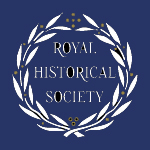I have compiled a set of notes for Napoleon on St Helena. This list comprises historical figures, subjects and events that I found useful in developing my understanding of The Atlantic World of Napoleon Bonaparte.
Click on the relevant letter of the Alphabet or Search for a specific name. For information on the regiments search under ‘R’.
There are currently 3 names in this directory beginning with the letter H.
Hodson
Major, St Helena Regiment. Town Major at Jamestown and Judge Advocate. Present at Napoleon’s funeral. Died at Bath 1858.
Holland
Lord and Lady and the Holland House Set. Elizabeth, Lady Holland was Napoleon’s most prominent supporter in England. Although banished from Court following a scandalous divorce, she presided over the most glittering social and political circle. The term ‘Holland House Set’ referred to a large group of Whig (liberal) politicians, literary figures and foreign visitors who were entertained at Holland House, the couple’s mansion in Kensington. These included Cavendish, Fitzwilliam, Spencer and Russell. Lord Holland’s uncle was Charles James Fox. Byron met Lady Caroline Lamb met at Holland House. Lord Holland was always pro-revolutionary France and was critical of expensive European wars. During Napoleon’s imprisonment on St Helena, the Hollands arranged to send over 1,000 books to him. Lord Holland believed that Napoleon’s death had been ‘a legal or political murder.’
Honourable East India Company
The ‘Company’. 1600-1874. Founded in London to trade with India, the East Indies and China. The Company, known as John Company, became the most powerful trading organisation since the Roman Empire accounting for 50% of the world’s trade. Originally trading in commodities such as cotton, silk, dyes, salt, spices, tea and opium, the Company took over the Dutch, French and Portugese trading empires in power, influence and territory and managed its own army numbering over 260,000 Indian sepoys commanded by British officers and Marine. The Company was managed by a Court of directors from a small office in Leadenhall Street in the City of London with the Government always retaining some control based on a series of Royal Charters. Fortunes were made by the Company’s in-country managers known as Writers that enabled them to return to Britain as rich men and establish large estates and businesses. Later the Company also traded in the Far East, Hongkong and Japan. In England cadet writers were trained at the Company’s staff college at Addiscombe near Croydon and its military officers and European soldiers at its depot at Warley in Essex. However, as the Company’s responsibilities increased so did its costs until finally the British Government took over complete control and it was nationalised in 1858 partly as a consequence of the Mutiny of 1857.

